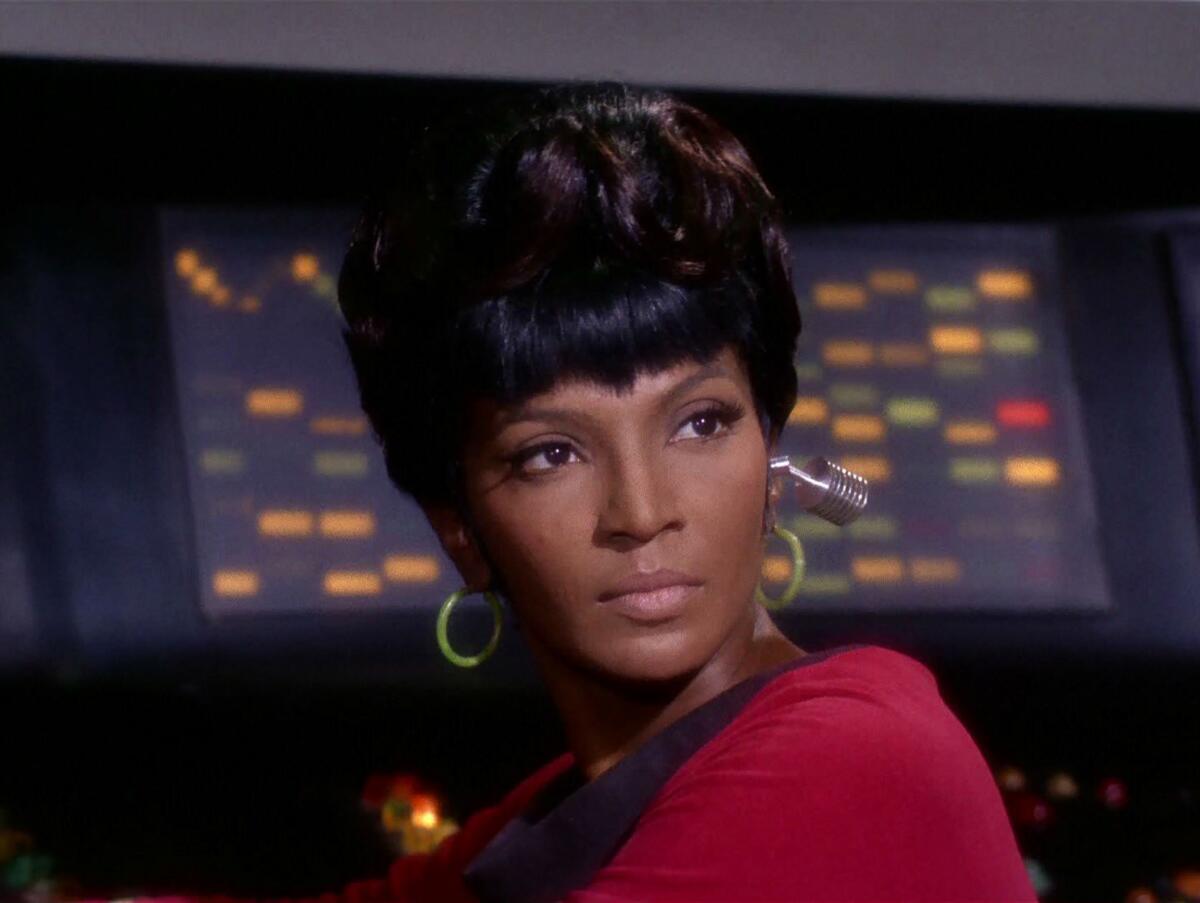Commentary: Lt. Uhura of ‘Star Trek’ took Black actresses where none had gone before

- Share via
Lt. Uhura’s presence on the deck of the starship Enterprise seemed routine for the 23rd century. But the casting of Nichelle Nichols, the Black actress who played Uhura on “Star Trek” in the late 1960s, was extraordinary. Nichols, who later appeared in six “Star Trek” movies, died Saturday at age 89.
In an era when Black women mainly played servants or entertainers on TV — if they were on TV at all — she was an officer on the Enterprise with whom Capt. Kirk conferred as seriously as he did Mr. Spock and all the other officers. I remember watching the show as a little girl and marveling that she was even there. She was smart and beautiful and clad in a red thigh-high form-fitting tunic that somehow she managed to carry off as legitimate astronaut wear.
In one episode, she and William Shatner, as Capt. Kirk, exchanged what many think is the first interracial kiss on TV between a white man and a Black woman. Yes, alien forces made them do it, but still. For years, when Nichols would attend “Star Trek” conventions, fans always wanted to know about the kiss.
As Lt. Uhura, everything on the series ran through Nichols, who died Saturday at 89. With the role, she created a 50-year legacy and legions of fans.
At the time, Nichols saw her role as just a gig until she could return to theater. But her place on “Star Trek” was so ground-breaking that, according to a story Nichols told widely, Martin Luther King Jr. urged her not to leave the show when she shared with him that she was about to quit. “The world sees us for the first time as we should be seen,” she said King told her.
The idea of a Black actor embodying a character — an astronaut, a spy, a farmer — who is not a slave, not a servant and not defined entirely by race was remarkable then. And unfortunately, to a certain extent, it is still remarkable today.
Nichols opened a path for Black actresses to take on lead roles. Starting in 1968, Diahann Carroll starred in the TV show “Julia” as a widowed mother working as a nurse, which ran for three seasons.
Still it would be decades before Whitney Houston had a sultry romance and a swoon-worthy kiss with Kevin Costner, the biggest movie star of the day, in “The Bodyguard” in 1992, and Kerry Washington led the cast of “Scandal” on TV for seven seasons starting in 2012. But it was the 23rd century Lt. Uhura who started the on-screen journey to the 21st century’s Olivia Pope.
More to Read
A cure for the common opinion
Get thought-provoking perspectives with our weekly newsletter.
You may occasionally receive promotional content from the Los Angeles Times.












